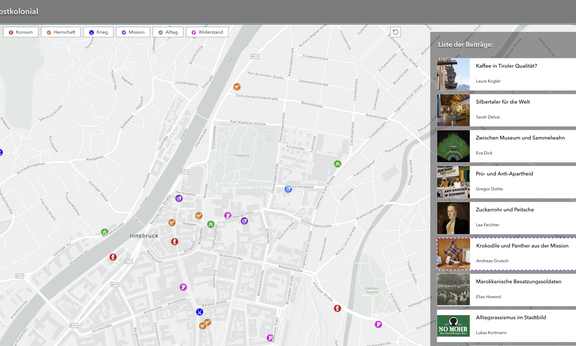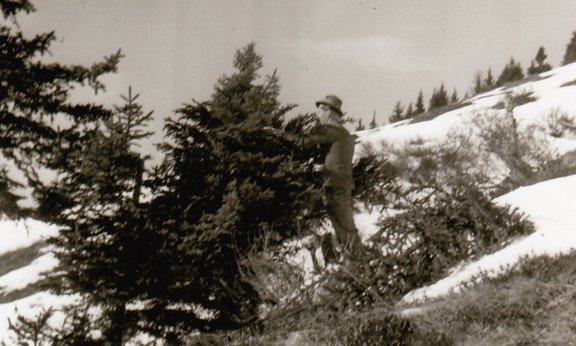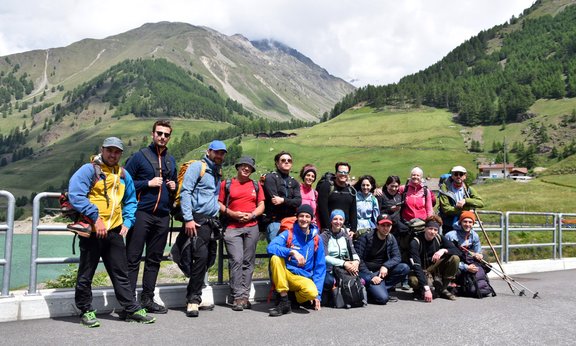Bachelor's Programme European Ethnology
Are you interested in diversity in society and would you like to understand the historical and current challenges of European everyday life?
The students of the Bachelor’s Degree Programme in European Ethnology acquire basic knowledge to analyse day-to-day experiences and customs of European societies and historical and current issues of societies.
Students acquire not only knowledge about cultural theories but also methodological skills and practical competencies for work in culture and media.
Please note: the language of instruction for this programme is German.
Study code
UC 033 623
FAQ
Graduates are able to elaborate, evaluate and implement scientific issues in the fields of cultural studies and to apply the skills required in interdisciplinary contexts. They possess scientifically well-founded theoretical and methodical problem-solving skills and multidisciplinary competences such as presentation skills, information and self-management.
The Bachelor’s Programme European Ethnology is grouped among the humanities.Graduates have the competence to ethnographically observe and describe cultural processes and their effects in order to analyse them with cultural science theories and models.
Students thus acquire abstraction abilities and learn to think in terms of comprehensive connections. In this context, they develop awareness of the questions of social constructions such as historicity, modernization, identity politics, globalization, gender etc., and they learn to relativize their own point of view. With its comparative and cultural-relativistic perspective, the Bachelor’s Programme in European Ethnology also promotes constructivist thinking and enables students to critically reflect their own assumptions and categories of perception.
Until the completion of the study programme, students develop critical reflection skills which enable them to apply European-ethnological knowledge to cultural problems by formulating and substantiating scientific arguments.
The Bachelor’s Programme European Ethnology prepares graduates for a wide range of occupational fields, such as in documentation, collecting, museums and exhibitions, libraries and publishing, public relations, cultural journalism, adult education, developmental work, cultural policy and administration, tourism as well as intercultural social work and cultural management.
Graduates tracking: Shows which occupational fields students enter after graduation
Faculty of Philosophy and History Examination Office Information for students with disabilities
Curriculum
From the field

Virtueller Stadtplan zeigt Spuren, Orte und Geschichten
Studierende der Europäischen Ethnologie und der Zeitgeschichte haben gemeinsam 29 Stationen eines virtuellen Stadtplans für Innsbruck ausgearbeitet. Innsbruck postkolonial – ein Kooperationsprojekt von Universität und Stadt Innsbruck – zeigt Spuren, Orte und Geschichten von Ungleichheiten, Rassismus und Widerstand bis in die Gegenwart.

Der Wolf ist da
Wie Wölfe die Alpen in Bewegung bringen, darüber diskutierten Elisa Frank und Nikolaus Heinzer von der Universität Zürich am 20. November in Innsbruck mit Kolleg:innen und der Öffentlichkeit. Sie waren auf Einladung des Forschungsschwerpunkts „Kulturelle Begegnungen – Kulturelle Konflikte“ nach Innsbruck gekommen.

Historische Waldnutzung und Hochwasserentstehung
In den Alpen spielen Hochwässer eine wichtige und oft bedrohende Rolle. Die Entstehung dieser sogenannten „Wildbäche“ ist ein komplexer Prozess. Ein Projekt unter der Leitung des Instituts für Geschichtswissenschaften und Europäische Ethnologie analysierte nun historische Quellen, um mehr über den Waldzustand und seine hydrologische Wirkung vor 200 Jahren zu erfahren.

Unterwegs im Ötztaler Gebirgsraum
Vom 27. Juni bis 2. Juli 2021 fand erstmals eine von der Leopold-Franzens-Universität und der Hebrew-University of Jerusalem gemeinsam konzipierte Exkursion in Tirol statt. Die Basis dafür bildete die seit einigen Jahren bestehende enge Partnerschaft beider Hochschulen, sie wird über das Austrian Israel Academic Network Innsbruck (AIANI, Dr. Marion Wieser) federführend betrieben.
Related studies

English and American Studies (Bachelor)
Bachelor of Arts

Educational Sciences (Bachelor)
Bachelor of Arts

History (Bachelor)
Bachelor of Arts

French (Bachelor)
Bachelor of Arts

















